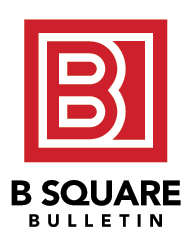
In her ruling issued on Dec. 20, Holly Harvey, a judge in the Monroe Circuit Court, has found that the city of Bloomington cannot acquire the JuanSells.com property at 222 S. Walnut through eminent domain.
Harvey agreed with Juan Carlos Carrasquel, the owner of the building, when she found that that the proposed six-story garage with 510 parking spaces and roughly 11,000 square feet of commercial space on the ground floor did not qualify as a public purpose, because of the commercial space.
From the ruling:
The Court concludes that the retail use of the proposed Project, which cannot be separated from the public aspect, prohibits the taking of the 222 Hats Real Estate. The Court therefore sustains Objection 1, and the Complaint is dismissed on that basis.
The ruling was issued late Friday before the week of Christmas. The Beacon was not able to reach anyone at the city of Bloomington on the question: Will the City of Bloomington appeal the ruling?
Bloomington wanted to buy the property at the south end of the block between 4th and 3rd streets along Walnut, so that the replacement parking structure—for the structurally failing 4th Street garage that previously stood there—can have a footprint that extends the length of the block.
Demolition of the garage by Denney Excavating, subcontracted by Wilhelm Construction, started in earnest in late September.
The offer made by the city, before the eminent domain legal proceedings were started in early June, was $587,500. Owner Juan Carlos Carrasquel did not want to sell. So Bloomington started its eminent domain action, which would have compelled Carrasquel to sell the building to the city.
The central legal question in the case turned on the definition of “public use” and whether Bloomington’s intended use for the property that it wanted to take—a parking garage with ground-floor commercial space—qualifies as public use.
Bloomington contended that the commercial space is only incidental to the intended principal use of the property, which will be a parking facility. 222 Hats contended that the commercial space, as one of the requirements made by the city council for its approval of project’s funding, is vital to the project.
In her finding, Harvey concluded that the private use couldn’t be separated from the public use of the project.
The site plan submitted by the city is for a six-story garage with 510 parking spaces and roughly 11,000 square feet of commercial space on the ground floor. The footprint would extend for 4th Street to the south end of the block at 3rd Street.
The city withdrew its proposed site plan from consideration by the plan commission just before the commission’s Dec. 9 meeting. The withdrawal came after monthly continuances starting in August. That withdrawal meant the city couldn’t bring back the site plan for consideration for three months, without permission from the plan commission.
When the plan commission first heard the city’s site plan in July, some commissioners said they didn’t think they had the legal authority to hear the proposal, given the eminent domain action that was pending at the time.
That’s because city code requires the owner of the property to make a site plan proposal or give written permission for it to be made. Carrasquel had not given permission.
The July vote on the first continuance by the plan commission failed, but no commissioner wanted to make a motion to adopt the plan. So on that occasion it was continued to the next month by default.
Information added at 11:31 p.m. Dec. 20, 2019 after initial publication: Outside legal counsel for Bloomington on the 222 Hats eminent domain case was provided by Indianapolis law firm Bose McKinney & Evans. City of Bloomington online records show that through Nov. 27 Bose McKinney & Evans was paid three invoices ($12,055.03, $5,399.50, and $6,977.00) for a total of $24,431.53.
Previous coverage by The Beacon, including oral arguments, is available here: City of Bloomington v. 222 Hats.

